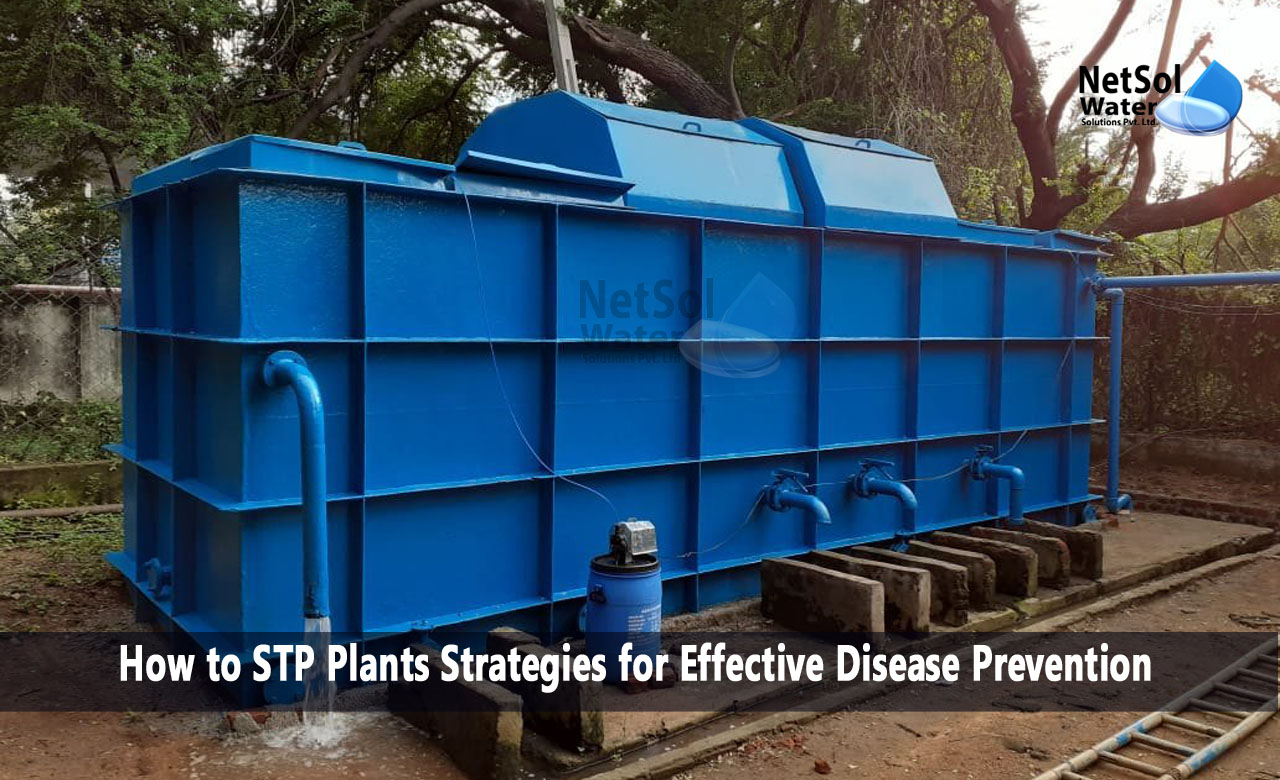How to STP Plants Strategies for Effective Disease Prevention?
Waterborne diseases pose significant risks to public health worldwide, highlighting the importance of effective sewage treatment plants. These essential facilities play a critical role in removing contaminants and pathogens from wastewater, safeguarding the quality of our water resources.
In this blog, we will explore the challenges posed by waterborne pathogens, discuss the key strategies employed by sewage treatment plants to prevent disease transmission, and emphasize the significance of collaboration between stakeholders to ensure effective disease prevention.
Understanding Waterborne Pathogens:
Waterborne pathogens encompass various microorganisms such as bacteria, viruses, and parasites that can cause illnesses when ingested or come into contact with humans. Common examples include Escherichia coli (E. coli), Salmonella, norovirus, Cryptosporidium, and Giardia. These pathogens can enter water sources through improper sewage disposal, runoff from agricultural or industrial activities, and inadequate sanitation practices.
Challenges Faced by Sewage Treatment Plants:
Sewage treatment plants face several challenges in dealing with waterborne pathogens effectively. These challenges include the diversity and adaptability of pathogens, fluctuating loads of wastewater, limited resources, and the need to comply with stringent water quality standards. Overcoming these challenges requires a multi-faceted approach that combines robust treatment processes, regular monitoring, and proactive management strategies.
Key Strategies for Effective Disease Prevention:
- Advanced Treatment Processes: Modern sewage treatment plants employ advanced treatment processes, including physical, chemical, and biological methods, to remove or inactivate pathogens. These processes may include primary and secondary treatment, disinfection (e.g., chlorination, UV irradiation), and tertiary treatment with advanced filtration techniques (e.g., membrane filtration, activated carbon adsorption) to achieve high-quality effluent.
- Enhanced Disinfection Practices: Effective disinfection is crucial for eliminating or reducing the concentration of waterborne pathogens. Sewage treatment plants employ disinfection methods such as chlorination, ultraviolet (UV) radiation, ozone, or a combination of these techniques to ensure the inactivation or removal of pathogens in the treated effluent.
- Biosolids Management: Proper management of biosolids, the residual solids generated during the treatment process, is essential to prevent the spread of pathogens. Sewage treatment plants implement protocols for the safe handling, treatment, and disposal of biosolids, including processes like anaerobic digestion, composting, and thermal drying to minimize the presence of pathogens.
- Monitoring and Surveillance: Regular monitoring of influent and effluent samples helps assess the effectiveness of treatment processes in removing pathogens. Sewage treatment plants conduct comprehensive microbial testing, including the measurement of indicator organisms, to ensure compliance with regulatory standards and identify any potential risks to public health.
- Public Education and Outreach: Sewage treatment plants play a crucial role in educating the public about waterborne pathogens, proper hygiene practices, and the importance of responsible wastewater management. Collaborative efforts with local communities, schools, and healthcare professionals help raise awareness and promote behaviors that reduce the risk of waterborne diseases.
Collaboration for Effective Disease Prevention:
Preventing the transmission of waterborne diseases requires collaboration between various stakeholders. Sewage treatment plants must work closely with regulatory agencies, local governments, researchers, and public health institutions to develop and implement comprehensive strategies. Collaborative efforts can include sharing knowledge and best practices, implementing robust monitoring programs, and establishing early warning systems to detect and respond to potential outbreaks.
Conclusion:
Sewage treatment plants play a crucial role in protecting public health by preventing the transmission of waterborne diseases. Through advanced treatment processes, enhanced disinfection practices, biosolids management, and continuous monitoring, these facilities ensure the removal or inactivation of waterborne pathogens. However, effective disease prevention requires collaboration and engagementfrom all stakeholders, including regulatory bodies, local communities, and public health institutions. By working together, we can implement and sustain effective strategies for preventing waterborne diseases.
It is also important to recognize that sewage treatment plants alone cannot guarantee complete eradication of waterborne pathogens. Individuals must also take responsibility for their actions by practicing proper hygiene, such as handwashing and safe food handling, and avoiding activities that contribute to water pollution. Education and awareness campaigns can empower individuals to make informed choices and actively participate in disease prevention efforts.
Furthermore, ongoing research and technological advancements play a vital role in improving the efficacy of sewage treatment plants in removing waterborne pathogens. Continued innovation in treatment processes, disinfection methods, and monitoring techniques enables us to stay ahead of emerging pathogens and enhance the overall performance of sewage treatment systems.
In conclusion, sewage treatment plants are critical components of our wastewater management infrastructure, playing a pivotal role in preventing the transmission of waterborne diseases. Through advanced treatment processes, enhanced disinfection practices, regular monitoring, and collaboration among stakeholders, we can ensure the effective removal or inactivation of waterborne pathogens. By prioritizing disease prevention and promoting responsible wastewater management practices, we can safeguard public health and preserve the integrity of our water resources for generations to come.
Netsol Water is Greater Noida-based leading water & wastewater treatment plant manufacturer. We are industry's most demanding company based on client review and work quality. We are known as best commercial RO plant manufacturers, industrial RO plant manufacturer, sewage treatment plant manufacturer, Water Softener Plant Manufacturers and effluent treatment plant manufacturers. Apart from this 24x7 customer support is our USP. Call on +91-9650608473, or write us at enquiry@netsolwater.com for any support, inquiry or product-purchase related query.



